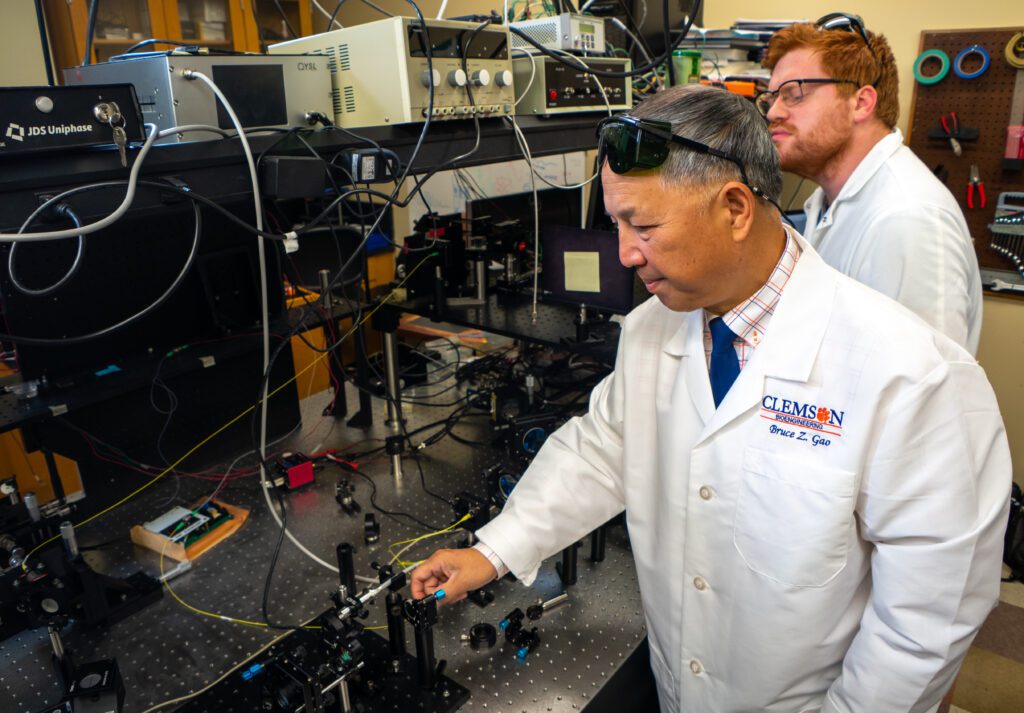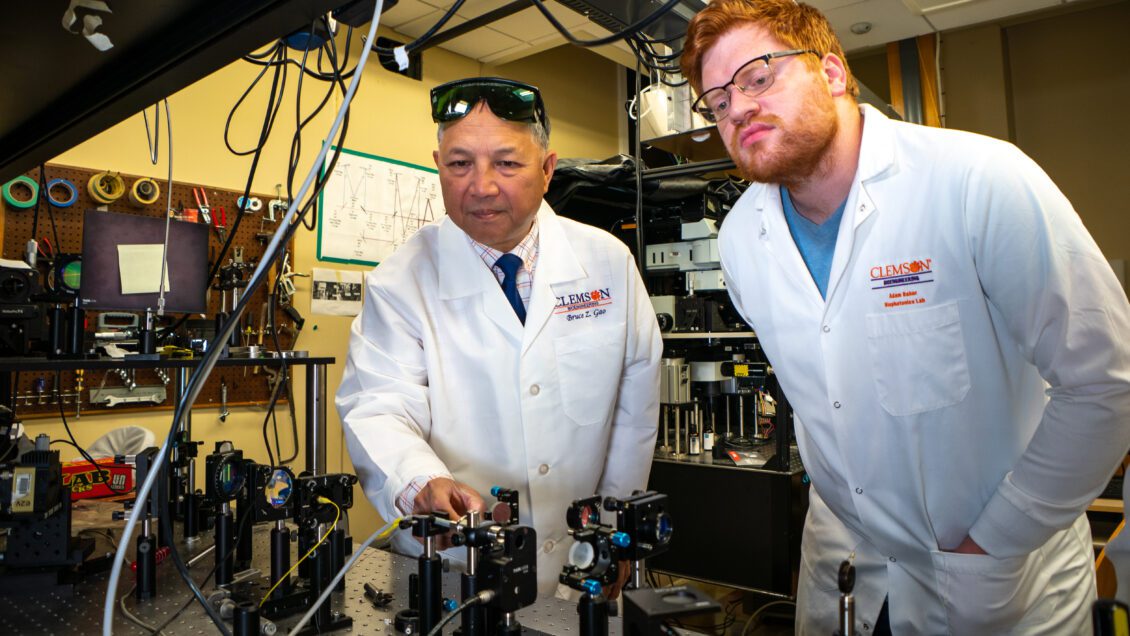A Clemson-led coalition of South Carolina researchers has formed to modernize health care diagnostics and treatment in South Carolina with the use of AI.
The National Science Foundation announced a $20 million, five-year investment in a multi-institutional project called Artificial Intelligence-Enabled Devices for the Advancement of Personalized and Transformative Health Care in South Carolina or ADAPT-SC. Funding comes from the National Science Foundation’s Established Program to Stimulate Competitive Research (NSF EPSCoR) Research Infrastructure Improvement Track-1 Award, which bolsters their overall goal to improve the research and development competitiveness of researchers and institutions within EPSCoR jurisdictions.
Clemson University will lead a statewide team of researchers from 11 institutions who will work closely with industry to advance AI-enabled medical devices and to train an AI-ready workforce.
Translational research and economic development will be the cornerstones of ADAPT-SC. With an exceptional network of collaborators, ADAPT-SC is well positioned to reach all areas of South Carolina with life-saving health care technologies and a skilled workforce for the future. I want to thank our partners for joining this effort and NSF for investing in this cause.
Clemson University President Jim Clements

Collaborators include the University of South Carolina, the Medical University of South Carolina, Benedict College, Claflin University, South Carolina State University, College of Charleston, Francis Marion University, The Citadel, Winthrop University and Tri-County Technical College. To advance translational research, ADAPT also will work with SC Bio, a statewide economic development organization and life-sciences industry association with nearly 200 members.
“Health innovation has long been a strength at Clemson, and we continue to build a strong platform in AI research. ADAPT will bring these two critical fields together to improve the quality of care and life in South Carolina,” said Tanju Karanfil, principal investigator on the project and Clemson vice president for research. “Ultimately, patients and their families will be the beneficiaries of what we believe will be life-saving research.”
The project has three primary goals:
- Build research capacity in AI-enabled biomedical devices in strategically identified areas to transform SC’s health care system, particularly in underserved areas;
- Build a diverse talent pool in the field of biomedical AI through innovations in education and workforce development from K-12 through all levels of higher education; and
- Foster interdisciplinary collaborations and academic–industrial partnerships by establishing research, education, and technology-transfer integrated programs.
Examples of ADAPT research projects include incorporating AI into diagnostic devices to illuminate some of the hidden underlying causes of cardiovascular disease, accurately detect wounds in intensive care units or predict the likely outcome of peripheral artery disease. Digital twins of patients will also be used to test AI-enabled therapy and rehabilitation plans for lung-cancer patients. ADAPT also will evaluate AI trustworthiness and device security.
“Health care providers face numerous challenges diagnosing disease, or monitoring infections from traumatic injuries, or predicting likely outcomes of various treatment plans. It is an incredibly difficult job, but AI can remove some of those challenges,” said Bruce Gao, ADAPT scientific lead and South Carolina SmartState Endowed Chair of biofabrication engineering at Clemson. “In particular, AI can provide expedient information that will help physicians create a care of plan specific to each patient’s condition and medical history.”
To advance the research, EPSCOR funds will support hiring five tenure-track faculty members and eight postdoctoral researchers throughout the state, as well as adding new computing and other infrastructure. The project involves more than 30 faculty members across the institutions and is expected to support training for more than 100 new Ph.D. students and 400 undergraduate students. ADAPT will conduct outreach to encourage K-12 students throughout the state to explore careers in science, technology, engineering and math, and provide training to K-12 STEM educators.
This material is based upon work supported by the National Science Foundation under Grant No. 2242812. Any opinions, findings and conclusions or recommendations expressed in this material are those of the authors and do not necessarily reflect the view of the National Science Foundation.
Get in touch and we will connect you with the author or another expert.
Or email us at news@clemson.edu

